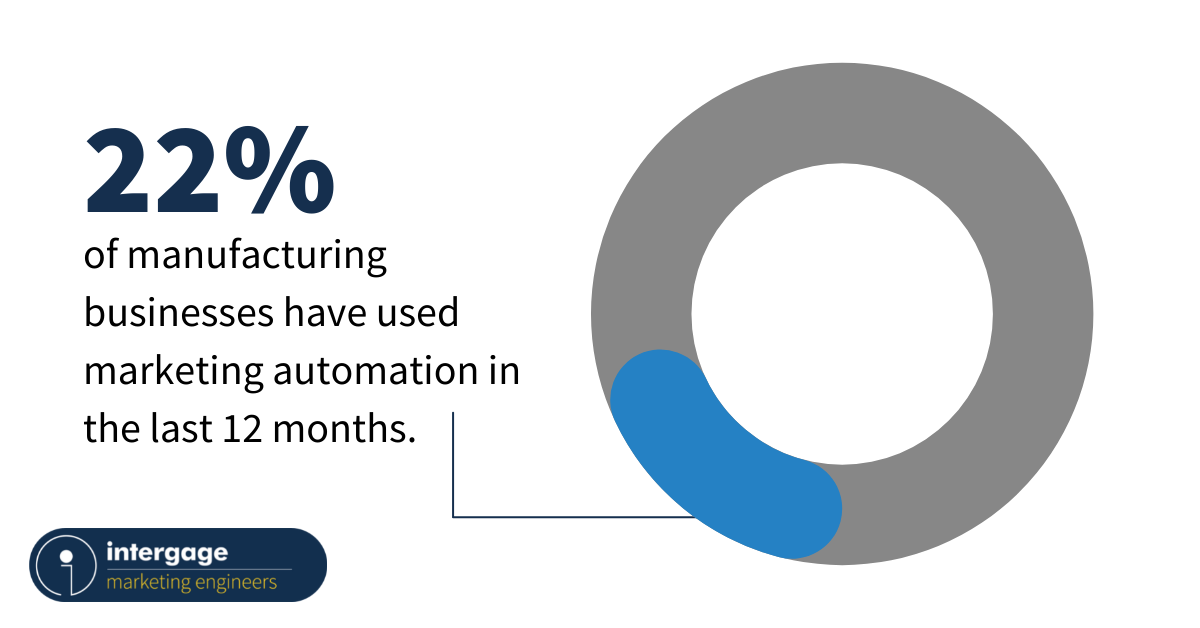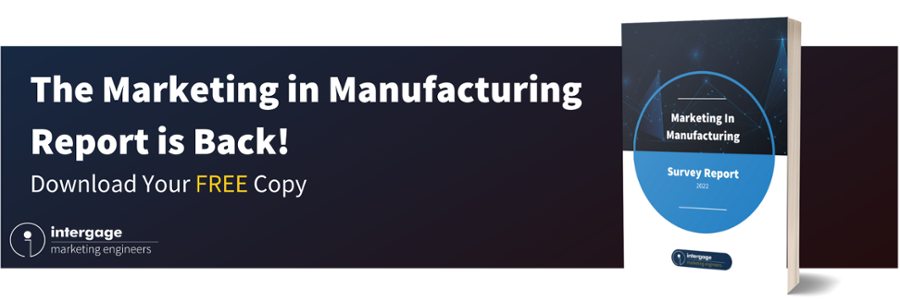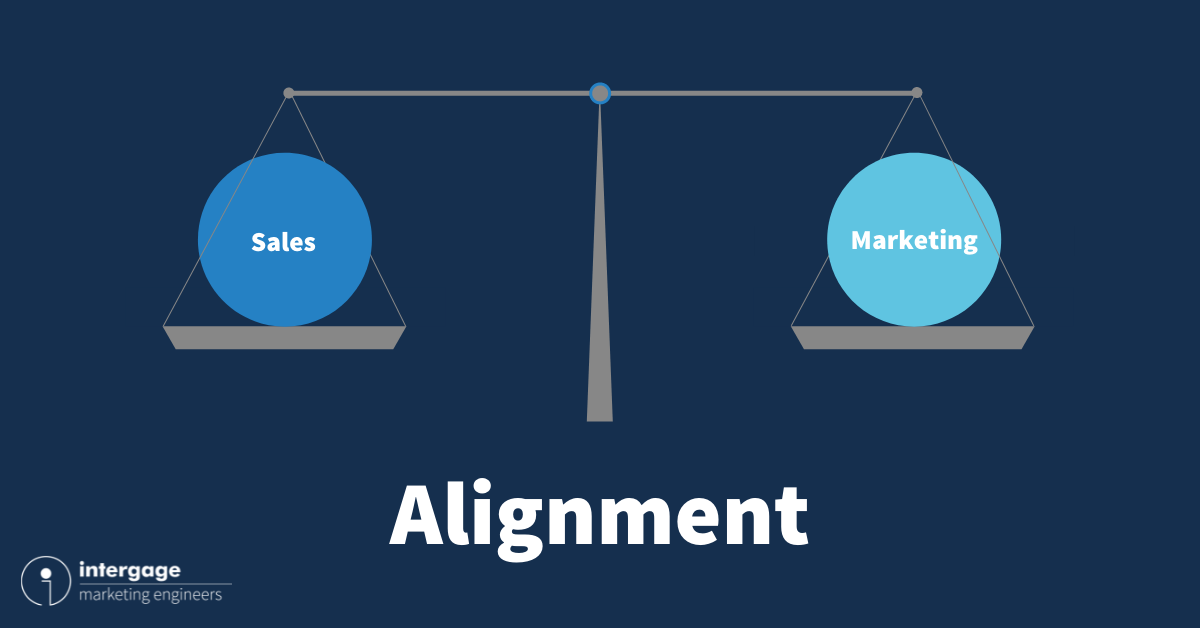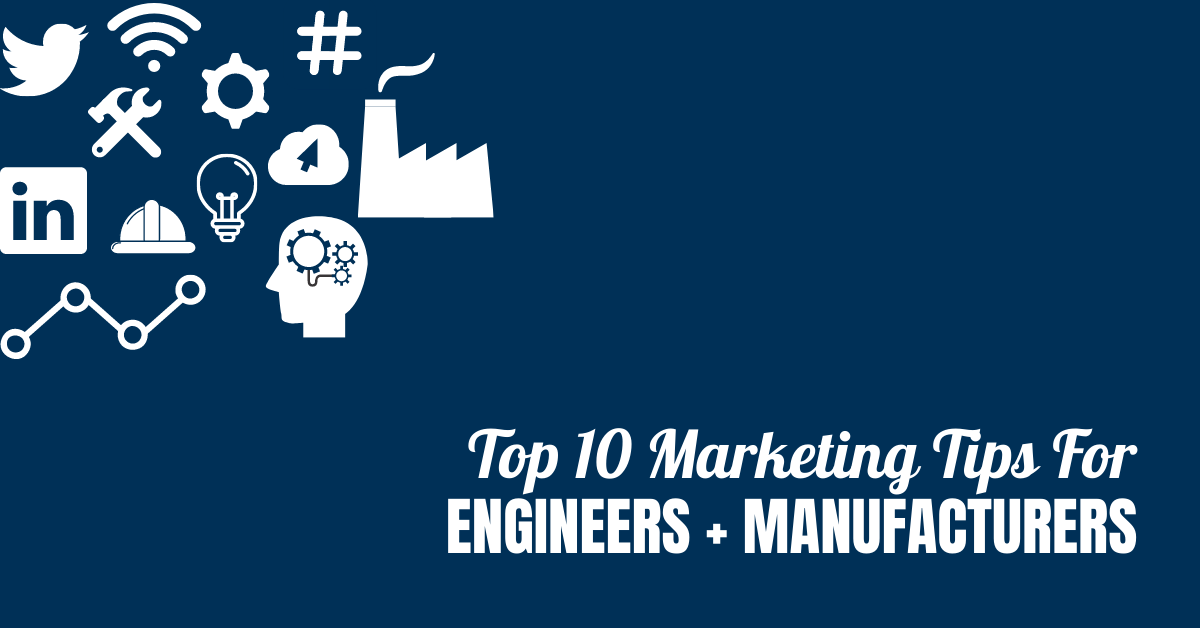Marketing Automation for Manufacturers
When it comes to digital marketing it’s fair to say B2B manufacturers were somewhat slow on the uptake and particularly when it comes to marketing automation. In fact, only 22% of manufacturers have used marketing automation in the last 12 months (The Marketing In Manufacturing Report).

An industry that had traditionally relied on trade shows, direct mail and catalogues to facilitate business certainly took it’s time to modernise. In fact, it could be argued, many within the sector are still playing catch up today. Surprising however, considering how many manufacturers invest in automation for their production lines, yet neglect to do the same for the engine that feed those lines with new orders.
For while the majority have belatedly - or should that be begrudgingly? - embraced online, a sizable percentage are yet to tap into one of the most powerful tools at their disposal… marketing automation.
In this article we’ll explain why that stance is both complacent and counterproductive.
Let’s begin by defining marketing automation itself.
Marketing Automation Explained
In a nutshell, this term refers to software which automates tasks that would otherwise be performed manually. In other words, by actual employees. This might include sending out useful content to prospects, following up on enquiries or even sending out pricing information.
Pulling data from a CRM, said software queues up helpful content that guides prospective customers through the all-important buyer’s journey. This path can be laden with blogs, e-mails, video or a combination of them all, packaged in a carefully planned workflow.
The software guides users to a point at which they can be considered a qualified lead, primed for a sales representative to convert. This means your salespeople only speak to the leads that are:
- a good fit for your business
- ready to buy from you.
Automation allows for the right content to be showed to the right people at the right time. It simplifies lead capture, lead nurture and relationship building. All incredibly important aspects of the typically long sales cycle for B2B manufacturers.
Moreover, automation empowers manufacturers to manage and monitor marketing from a single platform, facilitating joined up thinking across the business. Yes, marketing and sales teams really can unite…
In a short space of time prospects trust in your brand, and staff trust in the system. You might call that a win-win situation….
According to Nucleus Research, there is a 14.5% increase in sales productivity for those that commit wholeheartedly and onboard with automation. What manufacturer wouldn’t want that?
Still debating whether this is the path for you? Let’s delve a little deeper into the obvious benefits for manufacturing firms in particular.
8 Reasons Manufacturers Need Marketing Automation
1. Automation of Repetitive Tasks
As outlined above, the clue really is in the name.
Marketing automation ‘automates’ tasks both repetitive and time-consuming. Those charged with readying direct mail or worse still cold calling, are freed up to provide valuable resource elsewhere in the business.
Pre-written blogs and pre-built landing pages fill the subsequent void. They ensure helpful content is readily available WHEN prospects need it. Providing this output is well optimised, it will meet target personas halfway. It will also serve to build trust in your brand and position you as a thought leader.
2. Definition of Buyer Personas
On the subject of buyer personas, these become that bit clearer. Marketing automation platforms such as HubSpot provide valuable insight into your ideal customers – revealing what interests and disinterests them in equal measure.
What is accurately described as ‘behaviour information’ comes courtesy of tracked page views, tracked e-mail opens, tracked downloads, tracked form fills… you get the picture.
These are revelations that can lead to manufacturers adding to or re-defining their personas entirely, narrowing their focus as a result. Learn about building marketing personas for manufacturing businesses here.
3. Personalised User Experience
Meanwhile those same customers enjoy a personalised experience. This occurs because their actions trigger customised messages and content alike. This can be queued up to guide them through the buying process or ‘keep in touch’ long after that has concluded.
New promotions and/or products can be shared with existing customers labelled as such. Their experience becomes a tailored one, far removed from the one-size-fits-all approach of yesteryear.
4. Lead Scoring
Lead scoring – or tagging – further assists in this and groups prospects according to their position within the roadmap. This not only improves lead generation but empowers the sales team, who can home in on the most qualified leads, at the most appropriate time.
That sweet spot will almost certainly be once they’ve arrived at the decision stage of the journey, having already digested your content to progress through the awareness and consideration staging posts respectively.
This route can be long, indeed the sales cycle for manufacturers is often drawn out at the best of times. Nevertheless, lead identification is generally shortened by way of automation. The alternative is sales teams squandering hours chasing prospects that are nowhere near ready to purchase from you. This tactic can quickly disillusion both parties.
5. Analytics
As mentioned, marketing automation affords snapshots of user behaviour. These, in turn, enable marketers to gauge which aspects of a strategy are going to plan, and which have gone awry.
Certainly, the analytics available through the likes of HubSpot are detailed and brilliant. They can quickly result in on-page optimisation, increased ad spend, fewer social posts… in short, whichever adjustments the data dictates.
6. A/B Testing
A/B testing can also guide any change in approach. Automation allows you to modify the likes of landing page and e-mail copy and compare performance to previous versions. This results in data-driven decisions and continually improved marketing assets – something that would previously have taken a lot of trial and error.
7. Measuring ROI
One of the roadblocks to acceptance of digital marketing, at least within the manufacturing world, was the difficulty in determining a return on investment. In fact, 33% of manufacturers listed measuring success and return on investment as their primary marketing challenge (The Marketing In Manufacturing Report). Unsurprisingly, automation solves that problem too!
ROI is easily measured through lead capture and source reporting. Some platforms, including HubSpot, also come complete with a sales measurement tool… providing a visual representation of a deal from the enquiry stage through to actual payment and which marketing assets influenced that buying decision.
8. CRM
Any good marketing automation system will come with a modern, organised and easily updated CRM system.
Bulk imports allow those manufacturing firms that still attend tradeshows to upload a new list of prospects with relative ease. Profile building will then follow according to how those individuals engage with the company and its content.
Just as importantly, these entries are easily segmented by the likes of industry, location, company size and more. This means you can market to individuals depending on where they are, what their role is and which content they have viewed previously.
Automation has come to define modern marketing and is essential if manufacturing firms are to thrive in what is an increasingly competitive environment. No longer a secret weapon, it is one most B2B companies have within their arsenal. If you don’t you may be outgunned.





